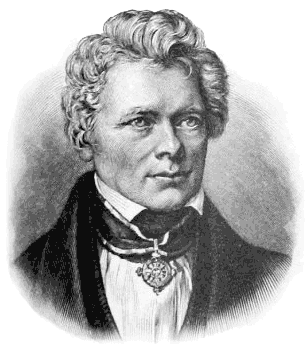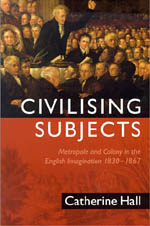 November has seen a lot of literary-philosophical in-review action here at The Notes Taken (with pieces, this week, on colonialism and more colonialism, California, Zizek's latest, travel reading, and Maoism in Nepal) which I have been enjoying from afar as a mere fly on the wall (one of the perverse ironies of teaching literature being the lack of time it allows for actually reading new books). For the last two weeks I've been going through David Foster Wallace's illimitable, inimitable magnum opus, Infinite Jest, with my American lit Honours seminar class at Nipissing U., and so but my review this week explores some of the highlights of D.F.W.'s web presence.
November has seen a lot of literary-philosophical in-review action here at The Notes Taken (with pieces, this week, on colonialism and more colonialism, California, Zizek's latest, travel reading, and Maoism in Nepal) which I have been enjoying from afar as a mere fly on the wall (one of the perverse ironies of teaching literature being the lack of time it allows for actually reading new books). For the last two weeks I've been going through David Foster Wallace's illimitable, inimitable magnum opus, Infinite Jest, with my American lit Honours seminar class at Nipissing U., and so but my review this week explores some of the highlights of D.F.W.'s web presence.I'd like to take this opportunity to thank to Marc Pritchard, Devin Shaw and Khalia Scott, whose recommendations finally motivated me to read Infinite Jest back in 2007, an unforgettable and life-altering experience that, while it nearly prevented me from completing my doctoral thesis on Brockden Brown and Poe, induced a number of nights of near-sleepless, blink-eyed over-poring, and left me with an over-powering urge to make unintelligibly pseudo-Hegelian declarations about the end and overcoming of postmodern fiction, was eminently worth the danger. I'd also like to thank diligent Nipissing students Leila Dunn, Jennifer Bennison, Kyla Morin and Shawn Fetterley for sharing some of these links, as well as their own thoughts on the novel (which I felt like Gerhardt Schtitt for assigning to undergrads, but which has made at least some converted Infinite Jesters.)
Here is the David Foster Wallace
Wiki, which features links to many of the best web entries on Wallace, which (aside from the Lipsky article) I won't reproduce here - a great resource for anybody reading (which is to say by default both working on and playing with) the novel. It also features spoiler-free, page-by-page annotations to the novel.
Here is David Lipsky's moving and highly insightful
account of Wallace's life and writing for Rolling Stone.
Here are a number of
links to audio interviews with David Foster Wallace, including an interview with Michael Silverblatt recorded just after the publication of Infinite Jest, where Wallace discusses the importance of fractals and other elements that influenced the novel's evolving structure, and Silverblatt's commentary on learning of Wallace's death.
Here is the Harper's (shortened) version of Wallace's
essay "Tense Present," which appears in its gloriously prolix full-length form in the collection Consider the Lobster.
Speaking of lobsters, here is an
extract from that book's titular essay, used by a website on vegetarianism. It also includes a little biographical information on Wallace (who was not, as he confesses in "Consider the Lobster," himself a vegetarian, although he couldn't quell his ethical qualms about eating meat.)
Here is the online version of the full article, as published in Gourmet magazine (I find the juxtaposition of these two venues too delicious to pass up.)
Here
is a brief meditation for The Atlantic by D.F.W. on terrorism
Here is a
recently post-I.J. interview with Wallace by Valerie Stivers (her account of her nervousness prior to meeting him, esp. her musing about what H.I.D. may have been hidden by his photo-pervasive bandanna, is hilarious)
Here is a New Yorker
article on Wallace's struggles writing his last (and soon to be posthumously published, although unfinished) novel, The Pale King
Here is a New York Times
obituary of Wallace and review of his writing.
Here is a Wall Street Journal article that summarizes Wallace's Kenyon commencement speech (which was formerly available online, but has since been copyright-tightened due to the publication of the quasi-koan-like, over-spaced edition, which you can buy here, if you are so inclined, paying for one to two sentences per page and dooming countless trees).http://www.amazon.com/dp/0316068225/ref%3Dasc_df_0316068225911777/%3Ftag%3Daskcomel-20%26creative%3D380333%26creativeASIN%3D0316068225%26linkCode%3Dasn http://online.wsj.com/article/SB122178211966454607.html
Here is "Infinitely Sad," Troy Patterson's retrospective article on Wallace, which explores Wallace's ambivalence toward literary Narcissism.
Here is a useful collection of links to critical responses, most of them early, to Infinite Jest.
Here is a glossary of terms from the book, each linked to its definition and etymology on answers.com (not as thorough as DFW's beloved OED, but it's a start)
Here is a link with some excerpts from Robert Bell and William Dowling's A Reader's Companion to Infinite Jest (which I have not yet read - the book, I mean, not the excerpts).
Here is a link to the Infinite Summer forum, a product of the e-collective reading of the novel that went on during the summer of 2009, a project which is beautifully apropos of the novel's preoccupation with isolation and the quest for community,
Here is a link to Gerry Canavan's blog, with an in-process discussion of irony, consumerism, and Johnny's Gentle's Reaganesque presidency in the novel (on that note, I just realized during my re-read that Chretien (aka "J.J.J.C.") is still the Prime Minister - err, I mean the "Secretary of State" of Canada during the novel, Wallace's prescience perhaps lacking the pessimism necessary to foresee our current P.M., with whom Pres. Gentle would no doubt get along rather smashingly.)Finally, here is a chatroom-convo from 1996 in which "dfw" (either the author, or a clever impostor) makes some tantalizing observations about I.J. (and some funny typos, too).













